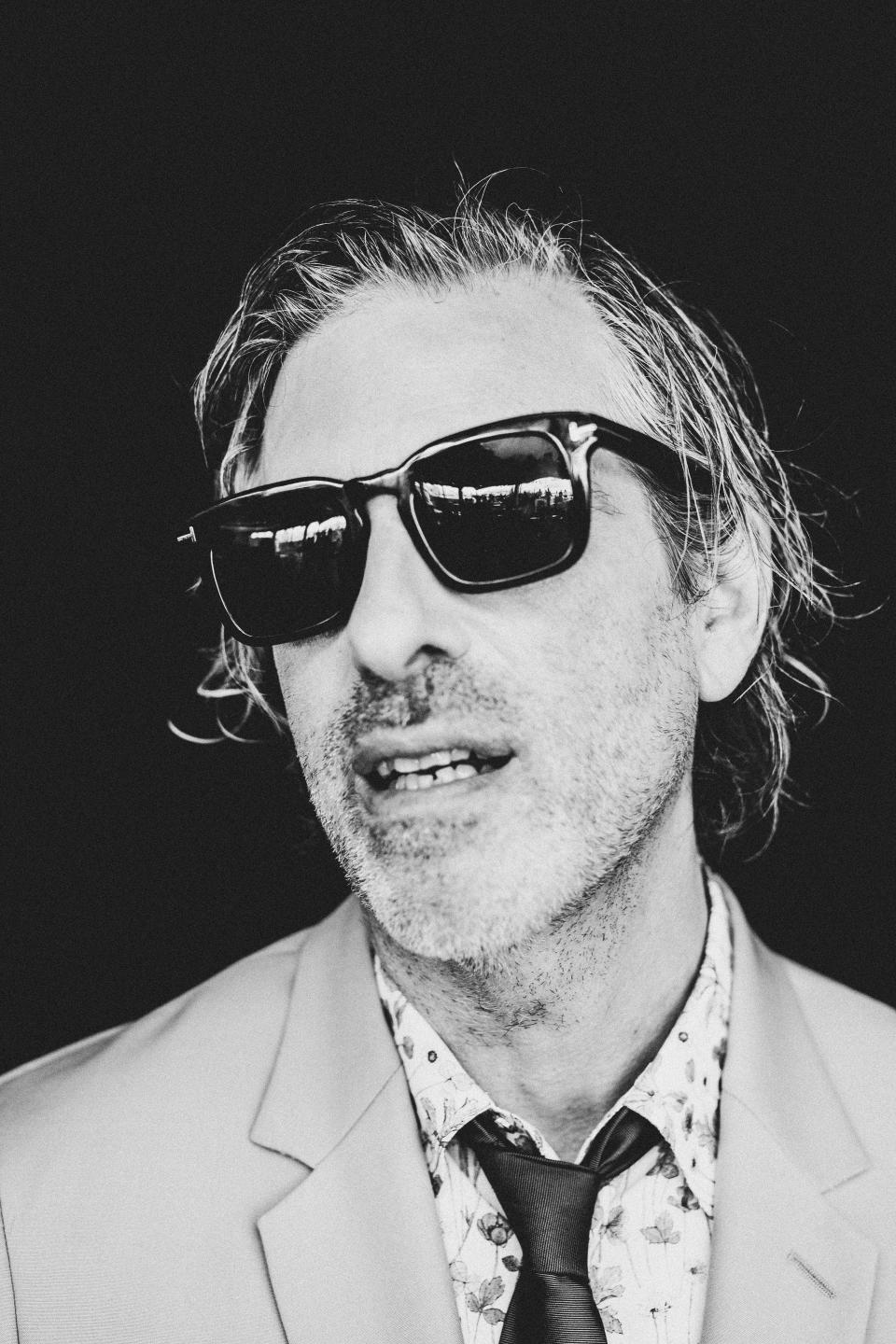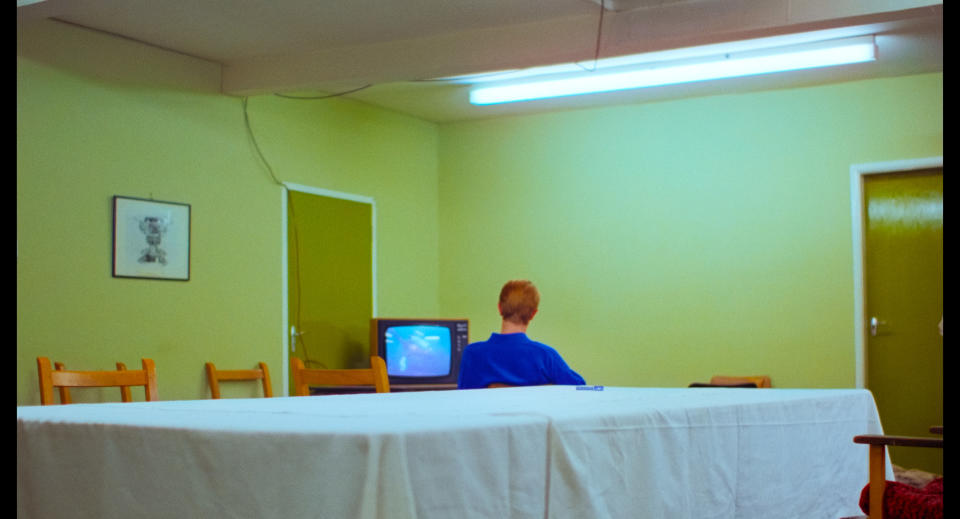Brett Morgen Savors Sound & Vision Of David Bowie In ‘Moonage Daydream’ As He Closes Out Music Doc Career
- Oops!Something went wrong.Please try again later.

Moonage Daydream, a film about David Bowie, opens with “Hallo Spaceboy,” a deep cut from his 1995 album Outside. It’s clear from the use of this song that Brett Morgen isn’t making a traditional documentary about the Thin White Duke.
“I was completely trolling,” admits Morgen.
More from Deadline
But the use of a relatively obscure industrial track from later in Bowie’s career illustrates what the director is trying to achieve. He’s looking to tell the story of Bowie’s work as an experience or a feeling, full of “chaos” and “fragmentation,” rather than a chronological, visual biography. This is something that many music documentaries don’t attempt.
Morgen says there are plenty of books and other documentaries about David Bowie that tell this version of the story.
“What can I offer that you can’t get in Wikipedia? It’s an experience. It’s something intangible. What’s great about Bowie is the mystery and the enigma,” he adds.
Francois Berthier/Getty Images
Morgen, who is the first filmmaker to have access to the entire Bowie archive, mixes this personal footage with unseen performances, Bowie’s own words and music, collected over 50 years, and clips from Clockwork Orange, The Wizard of Oz and Blade Runner.
He admits that his worst fear was facing a devoted fanbase that was expecting a biography full of interviews with the likes of Iggy Pop, who collaborated (and got clean) with Bowie in Berlin in the ’70s. “But if you already know that, why would you want me to put that in the film? Unfortunately, you probably closed yourself off to having what could have been a really interesting experience, because you wanted it to recite the facts that you already know.”
The film, which is being distributed by Neon and Universal Pictures, opens today in IMAX theaters before rolling out wide and later airing on HBO. Morgen wrote, directed, produced and edited the film by himself, a tricky process coming off the back of a heart attack, that took four years longer than planned.
“The one thing that I may share with David artistically and creatively is I make things very difficult for myself,” he says. “There was a moment five years into this where I was watching the Bee Gees documentary, which I loved. I cried, because I thought, why can’t I do this? This seems so fluid and like something that you wouldn’t have to kill yourself to do. But I don’t have that. I don’t know what it is about me that I like to forge new adventures. I’ve prided myself on not remaking The Kid Stays In The Picture and trying different avenues.”
Morgen has directed a number of other music documentaries, including Crossfire Hurricane, the story of The Rolling Stones early career through to 1981 that was produced by Mick Jagger and Keith Richards, and Kurt Cobain: Montage of Heck, about the Nirvana frontman, across his career.
Neon
But he says that Moonage Daydream will be his last. “The other night in Toronto… I said that this would be my last music doc and probably my last archival doc. Because if I didn’t say that, I would never be able to do it. That might have forced me into a position that I’m either going to betray myself, or I’m now locked in.”
Moonage Daydream is a visceral film and arguably one that could have only been made about an artist like David Bowie, who constantly reinvented himself and thought about his work in a more philosophical way than most artists.
But it also highlights the challenges of the genre. Films such as D.A Pennebaker’s landmark Bob Dylan documentary Dont Look Back and Robert Frank’s controversial cinema verité doc Cocksucker Blues, about The Rolling Stones’ debaucherous 1972 U.S. tour, have been largely replaced with tepid hagiographies about pop stars with one hit record (that they’ve exec produced themselves).
There are exceptions, of course, such as Peter Jackson’s Get Back, Todd Haynes The Velvet Underground and Questlove’s Summer of Soul (…Or, When the Revolution Could Not Be Televised) but they are in the minority.
Morgen says one of the reasons that innovation in form in documentary is difficult to achieve is because the networks and streaming services that fund the majority of these documentaries demand final cut.
He is reminded of a fight that he had with ESPN over his 30 for 30 doc June 17th, 1994, which looked at the sporting events that occurred during the police chase of O.J Simpson. It featured no interviews.
“I said if you want to do interviews, you can take the film back but… if you do that, it’s going to be watered down. I remember watching that first season and being a little disappointed that the films did sort of fit into a thing and I think it’s because of network notes. They know what they’re doing. They know what their audiences want, but it does homogenize the work,” he adds.
This evidently wasn’t the case for Moonage Daydream. Morgen says that he’s having the greatest summer of his life touring this film.
“I was so satiated creatively making this film. The only reason to make another one after this is to employ some of the lessons I’ve learned making this but short of that… I put in everything I had into this movie.”
Best of Deadline
NFL 2022 Schedule: Primetime TV Games, Thanksgiving Menu, Christmas Tripleheader & More
The Queen Onscreen: 15 Actresses (And Actors) Who've Played Elizabeth II In Film And On TV
'Blonde' Premiere Photo Gallery: Ana de Armas Channels Marilyn Monroe At Venice Film Festival
Sign up for Deadline's Newsletter. For the latest news, follow us on Facebook, Twitter, and Instagram.



